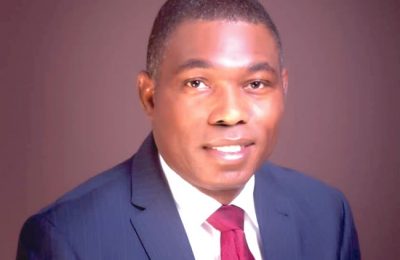
Dr Adeoye Oyewole, a consultant psychiatrist at the Ladoke Akintola University of Technology (LAUTECH) at Ogbomoso, in this interview with SADE OGUNTOLA, speaks on the implications of sudden calamities and how Nigerians can cope with its mental health consequences.
What are the problems that can arise when calamity befalls an individual?

The impact of a sudden disaster on the mind is very enormous, and some disorders are peculiar to enormous disasters like the one that occurred recently in Ibadan. The immediate reaction could be that of shock, when the person becomes numb, confused, and disorientated, particularly where exactly what happened was not premeditated.
That was a shock, which could be physical, like hearing that some people died. But beyond the physical ones that people can see, the traumatic effects of the calamity on the mind within the first few hours or days after the event would cause what is called an acute stress reaction. The tragedy is that some people breakdown with psychotic manifestations; they start hearing voices and becoming paranoid in extreme cases.
However, post-traumatic stress disorder is very common in survivors of big disasters: soldiers back from war, and survivors of motor accidents, aircraft accidents, and kidnapped victims. They experienced various things, from basic anxiety disorders, fears, palpitations, being unable to sleep, to being apprehensive. In reality, post-traumatic stress disorder comes as a result of flashbacks—a person re-experiencing what has happened as though it is just happening.
Why is coping with sudden disasters sometimes overwhelming?
Coping with a sudden disaster can be overwhelming because we are humans and our coping mechanisms are limited. More importantly, for a disaster that is unpredictable or unexpected, like buildings collapsing as if there is an earthquake, it can be challenging. So coping, which is the conscious, psychological process that an individual puts in place to mitigate a challenge, can be overwhelming, and some people could actually go into shock. Unfortunately, nothing is done oftentimes by the government to alleviate the long-term psychological challenges posed by sudden disasters or to help people adjust to their loss or what they are experiencing. Imagine a retiree who is just managing the little he has after losing his home! Where does he get the money to renovate his house or to move on with his life? So, they will feel overwhelmed. This may come in the form of depression or withdrawal from people, and it may even affect their relationships with family and friends. Some of them become very expressive; very confused in terms of behaviour; very gregarious, and somebody who has not been talking before now talks more. A person who may not be drinking starts to drink or abuse drugs.
What do anxiety disorder and panic attacks in situations of disaster look like?
Anxiety disorder and panic attacks are a range of reactions to a disaster due to anxiety, fear, or threat. When something that can cause fear or threat happens, it leads to an anxiety reaction, which ranges from anxiety disorder, generalised anxiety disorder, to panic attacks. Panic attacks make the heart beat in a way that is distressing, and it is affecting their functioning. They describe it like doctor; ‘my heart is beating so fast; I am afraid that it is going to stop. So, I’m trying to hold it so that it does not fret away.’ That’s the best way to describe a panic attack. This is discovered when it becomes very recurrent and, at the slightest opportunity, people begin to have such an experience, and it’s already affecting their functioning.
Initially, cardiologists used to be confused about it. They thought that it was a heart condition without knowing that it is related to the mind. It is the activation of the hormones of fear, fight, and flight that goes to work through the cascades of hormonal and regulatory responses of the nervous system that get the heart to work that way. But it is the only way humans are wired to react to threats.
When people are threatened, anxiety comes. It is supposed to be protective, but when it is overwhelming, it becomes a disorder like generalised anxiety disorders or panic attacks. Of course, due to fear, some other problems can arise. Some people will pack away from the area because they fear the disaster may reoccur even when there is no indication of its reoccurrence.
How can I manage anxiety on my own?
When you get anxious, you want to step on a flight. Just as it can be from a positive influence, it can also be in the form of a stressor; it comes with some form of anxiety. Individuals experience different forms of anxiety from day-to-day living. However, the anxiety that is not affecting a person’s functioning in relation to others can be managed by identifying the anxiety and then confronting what it is that is causing the anxiety through Cognitive Behavioural Therapy. By leveraging CBT, an individual can understand the reason why it shouldn’t cause anxiety and appropriately respond to it. Oftentimes, what causes anxiety is an improper definition of the threat. Something that is not threatening, which is defined as threatening, will push you into anxiety. Cognitive behavioural therapy has been found to be very effective in the management of depression and anxiety disorders. Through systematic desensitisation, they are gradually exposed to the same thing that is causing the anxiety while they begin to learn to take mastery, especially for anxiety experiences that are not distressful.
When should I seek professional help for anxiety?
Professional help for anxiety is indicated when normal anxiety helps to succeed; normal anxiety helps to be alert and take precautions, and normal anxiety that pushes in the direction of success is getting out of the way and it is causing distress. Also, if it is interrupting sleep due to nightmares or night terrors or experiencing a fast heartbeat that affects functionality at work and relationships, then there is a need to see a professional, especially a psychiatrist. Such individuals may require medications apart from psychological therapy.
Generally, are there specific triggers for panic attacks?
Anything that causes a threat to a human being, fear, will generate anxiety, not just panic attacks. Panic attacks are just a variant of what we call anxiety disorders. When the anxiety is not attached to anything, we call it generalised anxiety disorder. When the anxiety disorder is attached to a situation, we call it phobic anxiety disorder. It could be due to height, water, cockroaches, or small insects hiding somewhere. Of course, there is a panic disorder where it is specifically linked to the heart because of an exaggerated autonomic response to fear or fight.
Can lifestyle changes help reduce anxiety?
A change in mental attitude is helpful. Human beings are all in a continuous process of cognitive development. Coping strategies are not inherited; they are developed. These are conscious psychological strategies put in place to surmount a challenge to our lives that could be a threat. People can consciously develop their coping strategies. There is no life without its own challenges. Before the Ibadan disaster, for instance, some people had been through a lot of challenges in their lives. Some people have survived armed robber’s attacks and car accidents, and there is a way some of these experiences, if we focus on them positively, can serve as substrates for the development of our mental capacities in terms of developing what we call adaptive coping mechanisms or problem-solving tactics. Being able to apply some of these therapies in facing challenges expands our powers of coping with calamity and disasters; it expands the muscle of the mind. Problem-solving tactics should be part and parcel of our lifestyle.
If we can be more spiritual, not just religious, the more powerful spiritual we are, not just religious, the more powerful our minds are. We can imagine calamities before they happen, and we can proactively develop coping mechanisms through the power of our imaginations; we can transcend traumas, we can transcend our fears. We must also learn as a lifestyle to confront our fears. The creative use of religion is for you to approach it from the spiritual principled premix, where your spiritual principles help you in addressing some of these problems because if it does not, then of course, you are not growing.
Read Also: Planned strike: FG, ASUU to reconvene September 6
Is medication a recommended option for managing anxiety?
Yes, medication is one of the recommended options for managing anxiety aside from psychological strategies to ally the anxiety triggers. There are a whole lot of drugs that can help in calming people, making them have better sleep and be less tense so that they can now begin to grow their own adaptive coping mechanisms in handling such issues.
How long do panic attacks typically last?
Panic attacks, as they are called, are sporadic attacks, and they can last between five and 10 minutes, at worst 15 minutes. The abnormal beating of the heart is not something that is due to a problem or an anatomical structural problem with the heart. It is not because the heart is having an irregular beating or a disorder of conduction. So, it comes in attacks; in five to 10 minutes, it is gone. So, if it is becoming sustained, say 30 minutes, then it is no longer panic attacks. That is why, for people with panic attacks, cardiac studies are part of the investigations to know the exact problem.
Are there ways to prevent anxiety and panic attacks, particularly with respect to security incidents and sudden calamities?
I think that people need to develop coping mechanisms. Part of our religion is that the more spiritual we are, not just religious, the more powerful our mind is. We can perceive calamities before they happen, and we can actually develop coping mechanisms through the power of our imagination. We can transcend trauma; we can transcend our fears. We must also learn as a lifestyle to confront our fears. A lot of the reason why some of us are running from pillar to post, going from one church to another, or some other forms of religion is because, at times, there are lots of fears that we have that have not taken place.







